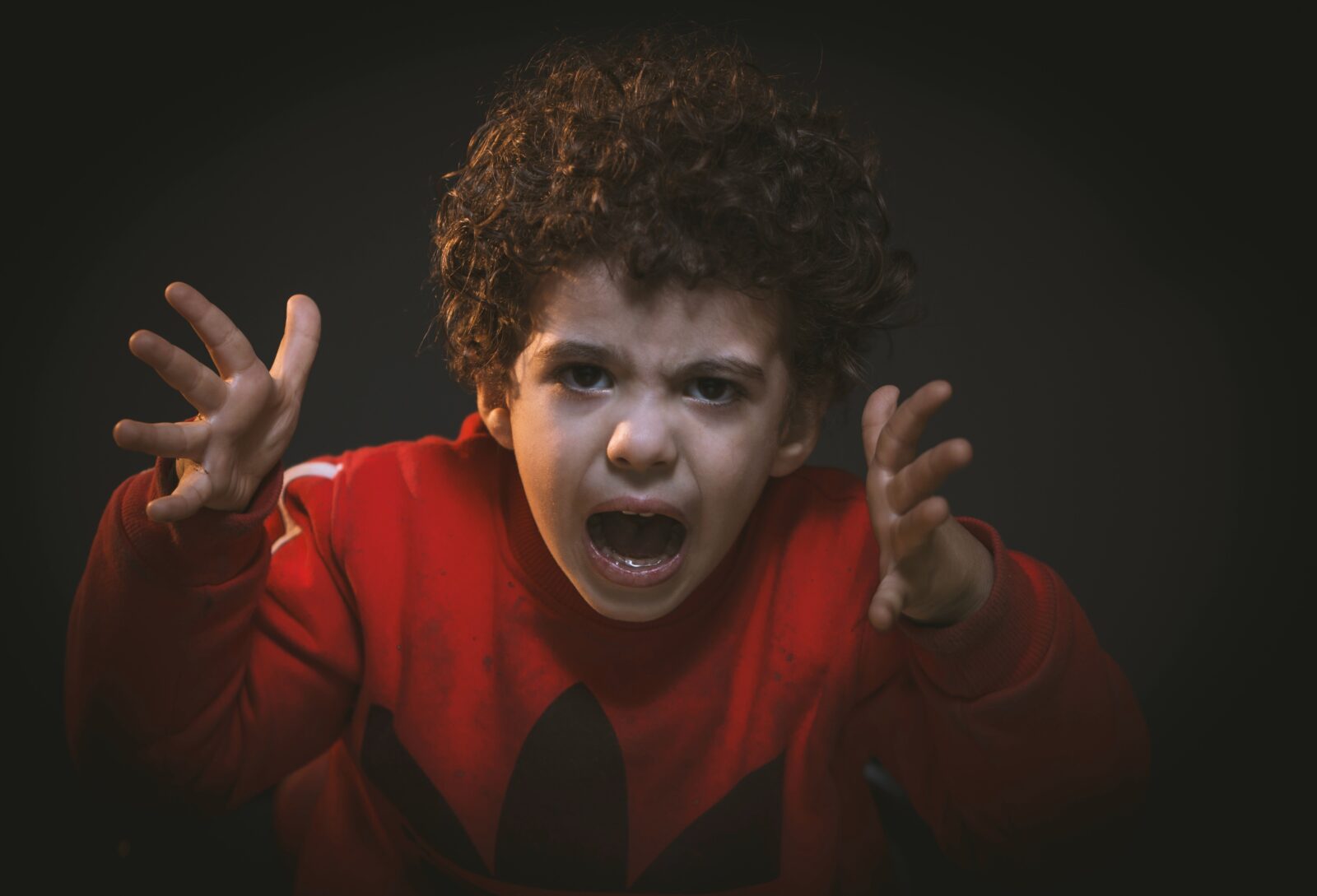How do we help our kids with the anger that they’re feeling inside? Whether they’re young and they’re expressing it through yelling, throwing things, hitting, or the attitude we get as they get older when they’re answering us, sometimes their anger shows up if we ask them to do something, then they ignore us. What is anger? For kids, a lot of the anger is triggered by not getting their way. They feel they don’t have control of the situation; they want something; they’ve asked you for it, and it’s a no. When they get that “no”. what are they immediately feeling? They’re feeling maybe rejected, out of control, and like they are missing out on something. Whatever it is, it doesn’t feel good. How do we, as human beings, express when something doesn’t feel good? We will even say our kids get aggressive, upset, or have behaviors when they’re tired because they don’t know how else to express them. Anger is a release; anger is, as I say, a second emotion. It is something that releases what has stacked inside a child, even us adults.
Think about us, the adults: when was the last time that you felt anger? What was going on? I used to say, “Oh, we yell.” For us, parents, that yell, I’ve been a yeller, and I am a yeller at times. It’s one of the things that I’m working on right now. I would say, “Why yell?” because I want to be seen and heard. So when I’m not feeling seen and heard, I’ve told my kids 10,000 times to do something they haven’t done, and what happens? I elevate my voice. I want to tell you that we also elevate our voice, yell, get angry, upset, or frustrated, and it comes out as maybe that aggressive behavior, that yelling, as a release. That’s what’s going on with our kids. When they are constantly angry, we can look at the child and say, “Wow, that kid has a lot of anger in them.” What that tells me is that there’s a lot of energy moving in that child that they just want to release. What is triggering it? Is it not getting its way? Is it feeling like they don’t have enough attention? Is it feeling like they don’t have control of the situation?
One of the ways that we can deal with that is to ask our kids, “What does “no” mean to you?” It’s a great question if you have teenagers, and it’s a great question if you have younger kids. Hear what that means to them; you might be surprised. I know this because I was so guilty of it back in the day. When I said no, my son got mad at me, and what did I make it mean? I made it mean that they’re just mad; they didn’t get their way. I’m here to tell you, especially as a coach, and I coach several kids on a daily basis, when I ask them, “What does ‘no’ mean to you? A lot of times, they don’t just say, “Well, I didn’t get my way.” Sometimes they say that they didn’t; they don’t feel like they were heard, and if their parents really heard what they were asking, they wouldn’t have said no. Some kids say that their parents say no because they just want them to be quiet, like shut up and go away. Some kids feel like they get a no because the parents need to feel like they’re in control, and they don’t want to give up control to the kids.
There are so many different reasons why our kids react to the word “no.” Ask them, “What does ‘no’ mean to you?” They do not realize that when we say “no,” sometimes it’s about safety, sometimes it’s about timing, sometimes it’s about finances, sometimes it’s about their attitude, and sometimes it’s about opportunity. It’s interesting because as I teach several classes on coaching, I tell the participants, “Go out and seek out no’s.” How do we become more comfortable with no’s, especially as adults or as entrepreneurs looking for business, without feeling the fear of no? It kind of goes back to psychology—back when we were younger and we got no’s, what did it mean to us? What does ‘no’ mean to us? As I say, especially if you listen to my TV show, I talk a lot about how, right now, our boot camp from birth to 18 is our boot camp. This is where we get to install whatever values, language patterns, and ways of solving problems. This all comes now, and before our kids leave the home at 18 or whatever age, are they ready to be adults?
One of the key things is, “How are they going to handle ‘no’?” Are we preparing them to understand how to handle no?” The only way we’re going to be able to do this is if we get to the bottom of what “no” means to them. Watch what happens with that aggression and those outbursts that we get—the aggressiveness from the kids, the yelling, and the attitude. You will watch it actually come down because the kids start to feel hurt. They no longer have to release all that pent-up energy. A lot of times, that energy has been stacked, maybe not even just that day but maybe for two or three days. If you have those kids that are more quiet, introverted kids that really go within themselves, they may have a week of pent-up energy, and then all of a sudden it’s like this volcano that explodes, and now it’s like, “Whoa, what just happened?”
Another tip that I would also invite you to try is a journal called Record Journal that my stepdaughter actually told my husband and I to get for our twins. It’s been great because it’s a tangible, kinesthetic type of journal that gives you something to do. It’s not just writing down your feelings and writing out why you’re upset, which can work as well. However, this gives them something tangible, like the ability to rip out the paper, crumple it up, throw it away, and rip little pieces out of it. It gives them something to do to release the anger that they’re feeling inside.
If you’re getting any type of tip that you can use, I’m also curious: what have you tried? What have you done with your kids to help bring down the anger? I will say this: when your kids are in heightened anger, that’s not the time to talk to them. When they’re having that behavioral burst, you need to wait until they come down. Not when they’re coming down; wait till they’ve totally come down and are calm, and then talk to them. Come with them with an expression of appreciation, like, “I appreciate that you are upset that I said ‘no,” and I really would like to talk to you about this. I really would like to understand when I said ‘no’, what did that mean to you?” Hear them and appreciate them again. “I can appreciate that you felt that I was trying to take control; what I would like to say is that that was not my intent. The reason I said ‘no’ is because of the timing. You don’t know what I have going on today, so there’s no way I can get you where you want to go and get you back home. That is why I said, “If I were going to explain it to you in a better way, how would you want to hear it?”
Of course, this conversation is for older kids, probably not your five- and six-year-olds. But it’s still great to understand and appreciate because when we appreciate someone’s language, we say, “I could appreciate you being upset. I could appreciate that it made you angry.” All of a sudden they feel seen and heard, which gives you an opportunity to really get in there and influence them because now you’re no longer judging them for the emotions that they were having.
Listen to the full episode here:
For more parenting content, visit my YouTube channel:

